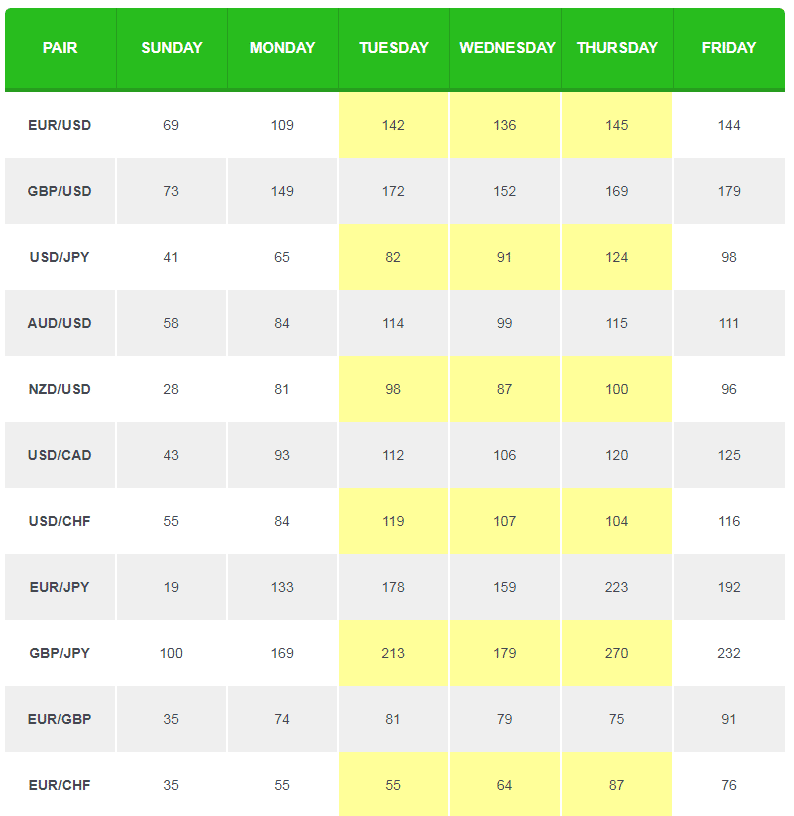
A futures expiry is the last day a derivative contract can be traded on an exchange. Many agricultural commodities have seasonal expiries that are based on the production schedules for the underlying assets. Oilseeds or grains have expiry dates, based on harvest and production plans.
Futures contracts have been standardized instruments. Each contract is assigned a symbol, a quantity, a settlement procedure, and an expiry date. Active traders should be aware of the expiry date for each contract. Generally, it is recommended to close out positions at least two weeks before the contract's expiry. You can also close any remaining open positions by rolling them to a different contract. This will ensure that your position is not locked.
The months prior to the expiry of a contract are generally the most difficult for commodity markets. Many participants have already sold their positions. It is therefore simpler to buy and then sell contracts. However, trading activity in the last month is often very low.

Futures market participants are speculators. They make their money by changing the commodity's price. The risk of moving a spot price is usually less than that of changing its long-term value. For instance, the spot rate on crude oil changed from a high of $102.50 a barrel in January to a low of $103.50 a barrel in February. However, it hasn't had a meaningful effect on the long-term price.
There are three types possible futures expiry dates. These dates can be either quarterly, monthly or seasonal. These dates allow you to specify the quantity and price per commodity. Although the futures market is speculative most participants deliver physical goods. Participant who does deliver a physical commodity is able to settle the contract through either physical delivery or financial settlement.
Two types of settlements are available in addition to the three types that futures have expiry dates. One is a cash Settlement, in which a physical product (e.g. a corn or olive future) is exchanged for cash. Another type of settlement is a financial settlement, which involves buying or selling dollars. Both options require participants to comply with the rules of the exchange.
The expiration of a futures contract is when the futures and physical markets align. This means that, if one party has an edge, then it's likely that the others will as well. In other words, the short squeeze. To mitigate price risk, it is crucial to choose the right futures position.

All futures contracts expire and all positions remain open. Trader's account balances are adjusted to reflect realized gains or losses. The market rate at which positions are being closed is also used. Sometimes, the trader is able to receive payment for the contract before its expiry. Some contracts are locked until the final settlement price is determined.
FAQ
What is the role of the Securities and Exchange Commission?
The SEC regulates securities exchanges, broker-dealers, investment companies, and other entities involved in the distribution of securities. It also enforces federal securities law.
How are share prices set?
Investors who seek a return for their investments set the share price. They want to earn money for the company. So they purchase shares at a set price. If the share price increases, the investor makes more money. If the share price goes down, the investor will lose money.
An investor's primary goal is to make money. This is why they invest. It allows them to make a lot.
How do I invest in the stock market?
Brokers are able to help you buy and sell securities. A broker buys or sells securities for you. When you trade securities, brokerage commissions are paid.
Banks typically charge higher fees for brokers. Banks offer better rates than brokers because they don’t make any money from selling securities.
You must open an account at a bank or broker if you wish to invest in stocks.
If you are using a broker to help you buy and sell securities, he will give you an estimate of how much it would cost. The size of each transaction will determine how much he charges.
Your broker should be able to answer these questions:
-
Minimum amount required to open a trading account
-
Are there any additional charges for closing your position before expiration?
-
What happens if you lose more that $5,000 in a single day?
-
How long can positions be held without tax?
-
How much you can borrow against your portfolio
-
Transfer funds between accounts
-
how long it takes to settle transactions
-
How to sell or purchase securities the most effectively
-
How to avoid fraud
-
How to get help when you need it
-
How you can stop trading at anytime
-
whether you have to report trades to the government
-
whether you need to file reports with the SEC
-
Whether you need to keep records of transactions
-
Whether you are required by the SEC to register
-
What is registration?
-
How does it affect me?
-
Who is required to be registered
-
What are the requirements to register?
Statistics
- US resident who opens a new IBKR Pro individual or joint account receives a 0.25% rate reduction on margin loans. (nerdwallet.com)
- Ratchet down that 10% if you don't yet have a healthy emergency fund and 10% to 15% of your income funneled into a retirement savings account. (nerdwallet.com)
- Our focus on Main Street investors reflects the fact that American households own $38 trillion worth of equities, more than 59 percent of the U.S. equity market either directly or indirectly through mutual funds, retirement accounts, and other investments. (sec.gov)
- Even if you find talent for trading stocks, allocating more than 10% of your portfolio to an individual stock can expose your savings to too much volatility. (nerdwallet.com)
External Links
How To
How to Trade on the Stock Market
Stock trading involves the purchase and sale of stocks, bonds, commodities or currencies as well as derivatives. The word "trading" comes from the French term traiteur (someone who buys and sells). Traders are people who buy and sell securities to make money. It is one of oldest forms of financial investing.
There are many methods to invest in stock markets. There are three types that you can invest in the stock market: active, passive, or hybrid. Passive investors simply watch their investments grow. Actively traded traders try to find winning companies and earn money. Hybrid investors use a combination of these two approaches.
Index funds track broad indices, such as S&P 500 or Dow Jones Industrial Average. Passive investment is achieved through index funds. This approach is very popular because it allows you to reap the benefits of diversification without having to deal directly with the risk involved. You can just relax and let your investments do the work.
Active investing is about picking specific companies to analyze their performance. The factors that active investors consider include earnings growth, return of equity, debt ratios and P/E ratios, cash flow, book values, dividend payout, management, share price history, and more. They decide whether or not they want to invest in shares of the company. They will purchase shares if they believe the company is undervalued and wait for the price to rise. On the other side, if the company is valued too high, they will wait until it drops before buying shares.
Hybrid investing combines some aspects of both passive and active investing. Hybrid investing is a combination of active and passive investing. You may choose to track multiple stocks in a fund, but you want to also select several companies. In this instance, you might put part of your portfolio in passively managed funds and part in active managed funds.